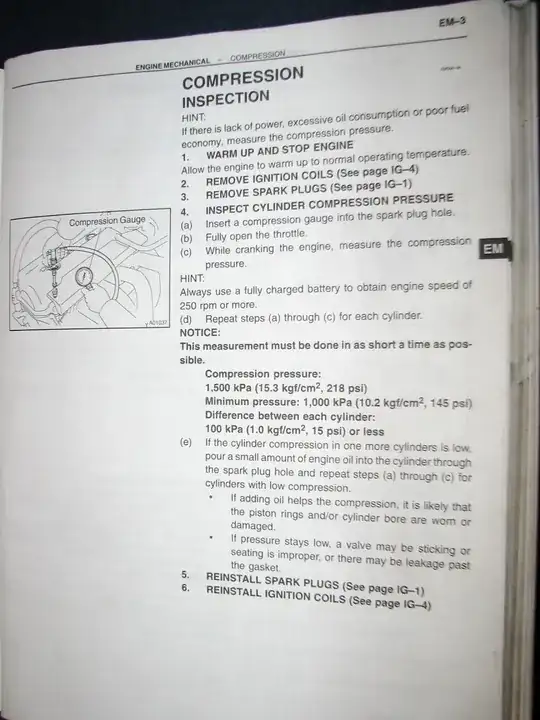SOLUTION: The tubes on the top of the motor for the PCV system were backwards. See https://invidious.fdn.fr/watch?v=07ssRI8k81E for correct configuration. Oil would pool in the air intake until you drove it up hill, and then it would start to enter the engine and burn off.
Original:
Does substantially increased compression test numbers after adding oil to the cylinder necessarily imply that piston rings and/or cylinder bore is bad?
My 2003 Toyota Matrix (1zzfe) is burning oil and blowing smoke. I did a compression test and the numbers seemed low, after putting a bit of oil in the cylinder and re-testing compression improved substantially (about 30 PSI).
After dismantling the motor I used a micrometer to check the cylinder and it looked OK to me, across each entire cylinder there might have been about .001" difference. I honed the cylinder and put in new rings. Put it back together, and its still burning oil. So I redid the compression test with nearly identical results.
Compression across all cylinders is roughly identical. 60 PSI on first bump, ending around 150 PSI. With oil, 90 PSI on first bump, ending around 175 PSI.
Do these compression test results necessarily mean that its piston rings and/or cylinder bore? Given than I just put in new rings then with would have to be the cylinder bore in this case. However because the pressure is identical across cylinders, and given I mic'd, honed, and put in new rings, I'm inclined to believe that the oil burning problems are related to valves and my compression numbers are actually OK.
For reference, my compression test instructions:
